Introduction
Salah (prayer) is the second pillar of Islam and the most direct connection between a believer and Allah. The Prophet Muhammad (ﷺ) said:
“The first matter that the slave will be brought to account for on the Day of Judgment is the prayer. If it is sound, then the rest of his deeds will be sound. And if it is bad, then the rest of his deeds will be bad.” (At-Tabarani)
Yet, many Muslims—especially beginners—struggle with performing Salah correctly. Some feel unsure about the steps, while others rush through prayers without concentration.
This guide provides a step-by-step breakdown of Salah, covering:
The importance of Salah
Prerequisites (Wudu, cleanliness, intention)
A detailed Salah procedure (with Sunnah acts)
Common mistakes & how to fix them
Tips for improving focus (Khushu’)
By the end, you’ll feel confident in performing Salah the way the Prophet (ﷺ) taught.
Why Is Salah So Important?
A Divine Obligation
Allah commands in the Quran:
“Indeed, prayer has been decreed upon the believers a decree of specified times.” (Quran 4:103)
5 times Salah is mandatory for every Muslim. Neglecting it is a major sin, while performing it correctly brings immense rewards.
Spiritual & Physical Benefits
Purifies the heart – Removes sins when performed with sincerity (Hadith: “The five daily prayers erase sins like water cleanses dirt.” – Bukhari)
Discipline & time management – Teaches punctuality.
Physical health benefits – Gentle movements improve posture, circulation, and joint flexibility.


What You Need Before Starting Salah
1. Wudu
Steps of Wudu:
Intention (in the heart).
Say “Bismillah”.
Wash hands 3x.
Rinse mouth & nose 3x.
Wash face 3x.
Wash arms up to elbows (right first).
Wipe the head (once).
Wipe ears (inside & out).
Wash feet up to ankles (right first)
Sunnah Acts:
Using a Miswak before Wudu.
Reciting the Shahadah after finishing.
2. Cleanliness (Taharah)
Wear clean clothes.
Ensure the prayer area is clean.
Women must cover their entire body except face and hands.
Men must cover from navel to knees at minimum.
3. Facing the Qiblah
Face the Kaaba in Makkah. Use a compass or mobile app if unsure.
4. Intention (Niyyah)
Made in the heart (no need to say it out loud).
Step-by-Step Salah Guide (With Sunnah Acts)
We’ll break down Fardh Salah (obligatory prayer) into simple steps.
Takbeer (Starting the Prayer)
Raise hands to ears (men) or shoulders (women) and say:
“Allahu Akbar” (Allah is the Greatest).
Place right hand over left on the chest.
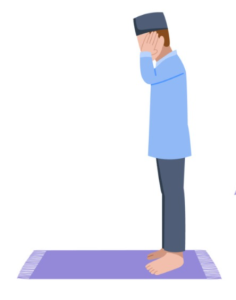
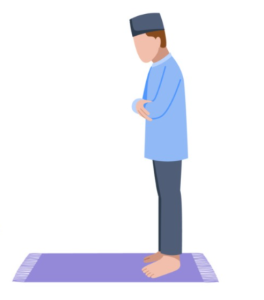
Standing (Qiyam)
ecite Surah Al-Fatihah (obligatory):
“Bismillah hir-Rahman nir-Raheem. Alhamdu lillahi Rabbil ‘alameen…”
Recite a short Surah (e.g., Surah Al-Ikhlas).
Ruku (Bowing)
Bend forward, keeping back straight, hands on knees.
Say:
“Subhana Rabbiyal Adheem” (Glory to my Lord, the Almighty) – 3x
Common Mistake: Bending too little or too much.
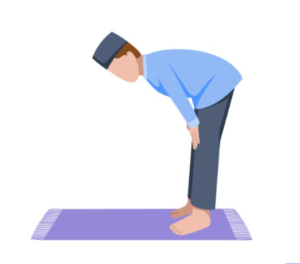
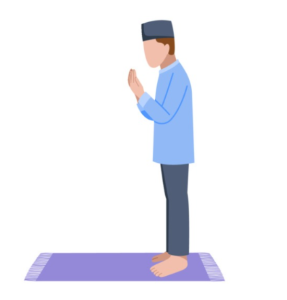
Standing After Ruku (I’tidal)
Rise up saying:
“Sami’ Allahu liman hamidah” (Allah hears those who praise Him).
While standing, say:
“Rabbana lakal hamd” (Our Lord, to You is all praise).
Sujood (Prostration)
Place forehead, nose, palms, knees, and toes on the ground.
Say:
“Subhana Rabbiyal A’la” (Glory to my Lord, the Most High) – 3x
Sunnah: Keep elbows slightly raised (men), close to the body (women).
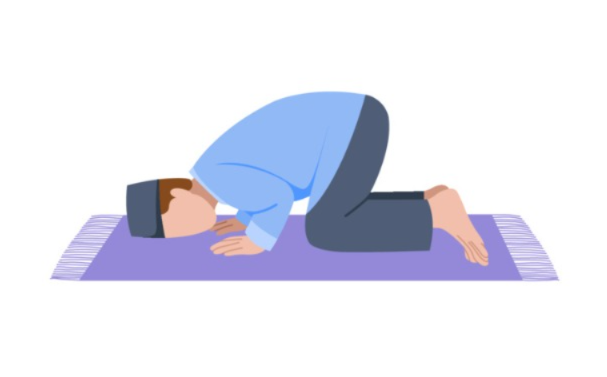
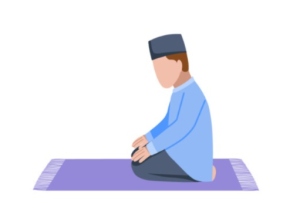
Final Tashahhud & Salam
In the last sitting, recite Attahiyat:
“At-tahiyyatu lillahi was-salawatu wat-tayyibatu…”
Send blessings on the Prophet (ﷺ) (Durood Ibrahim).
End with Salam:
Turn head right: “Assalamu alaykum wa rahmatullah”
Turn head left: “Assalamu alaykum wa rahmatullah”
Common Salah Mistakes & Fixes
Mistake
- Rushing movements
- Incorrect back posture in Ruku
- Not reciting Surah Al-Fatihah
- Distracted thoughts
Correction
- Pause briefly in each position
- Keep spine straight, parallel to ground
- It’s obligatory in every Rak’ah!
- Focus on meanings of recited words
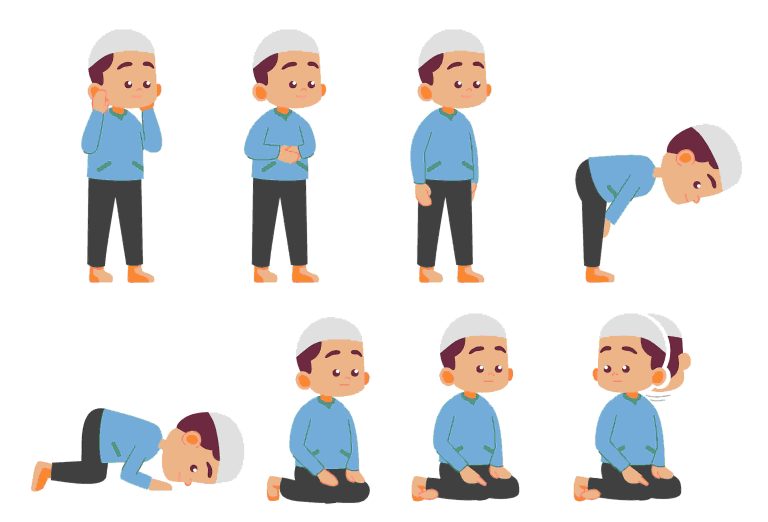
Conclusion
Salah is a gift, not a burden. By learning its proper way, you transform it from a ritual into a deep spiritual experience.
Need further guidance? Join QuranEZ for structured online Quran & Salah classes!
“O you who believe! Seek help through patience and prayer. Indeed, Allah is with the patient.” (Quran 2:153)
